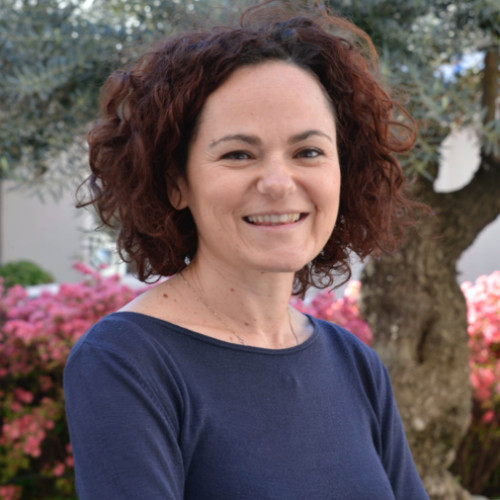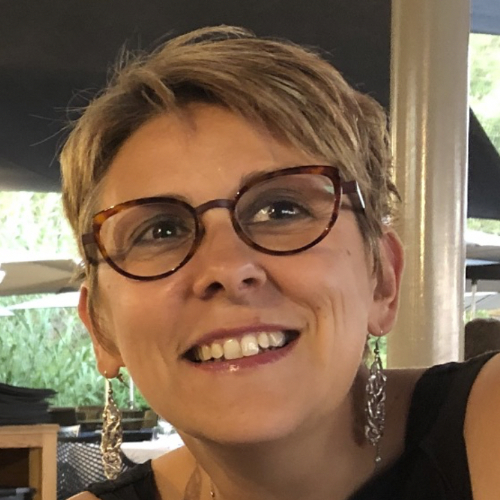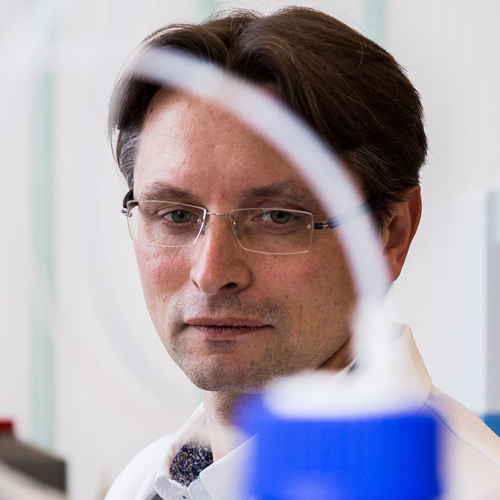
Tiziana Bonaldi 
Sarah Cianferani 
Manuel Mayr 
Jean Armengaud
Tiziana Bonaldi – Systems Biology
TB is Tenured Group Leader at the European Institute of Oncology (IEO) in Milan, where she directs the “Cacner epi- proteomics and gene expression regulation” since 2008. Following a PhD in Molecular and Cellular Biology at the Dibit, San Raffaele Institute in Milan, she did a first post-doc at the LMU in Munich, in A. Imhof’s lab, where she started developing MS methods to study the histone code; then she carried out a second post-doc in the M- Mann’s group at the MPI of Biochemistry in Martinsried to strengthen her expertise in quantitative proteomics. She received the “Armenise-Harvard Career Development Award” in 2007 and the “International Inner Wheel for Women, for scientific achievements” in 2010. In 2014, she successfully completed her tenure-track and was appointed as Associate Professor at IEO. TB group effort is devoted to conjugating mass spectrometry (MS) –based proteomics to the investigation of the molecular mechanisms underpinning adaptive response in cancer, linked to epigenetic regulation of gene expression. Her research has contributed both technological innovations and original findings in MS-analysis of chromatin composition and modifications, on histones and beyond. She published 75 peer-review scientific papers (Google scholar h-index= 35).She’s married, with 2 children
Sarah Cianferani – Interactomics
Dr. Sarah CIANFERANI is a research Director at the National Center for Scientific Research (CNRS) in France. She is currently heading the BioOrganic Mass Spectrometry Laboratory at the Institut Pluridisciplinaire Hubert Curien (IPHC) in Strasbourg, a team of 40 people that has strong expertise in proteomic analyses and structural mass spectrometry. Her expertise focuses on developments in structural mass spectrometry and applications of advanced native mass spectrometry and native ion-mobility mass spectrometry methodologies for biological noncovalent complex characterization, and especially biopharmaceuticals. Dr. Sarah Cianférani holds a PhD degree in analytical chemistry from the University of Strasbourg, France. She performed and post-doctoral fellowship at the Institute for Genetics and Molecular Biology (IGBMC) in Strasbourg to gain expertise in structural biology. She then joined the AliX company to develop native Mass Spectrometry for protein/ligand screening. She was recruited by the CNRS as researcher in 2004 in the team of Alain Van Dorsselaer (BioOrganic Mass Spectrometry Lab, LSMBO) in Strasbourg. She is now research director at the CNRS and heads the BioOrganic Mass Spectrometry Laboratory (LSMBO). Her group is part of the French National Proteomic Infrastructure. She is co-author of more than 180 scientific papers related to mass spectrometry analysis of proteins.
Manuel Mayr – Clinical Proteomics
Manuel Mayr qualified in Medicine from the University of Innsbruck (Austria) in 1999. He then moved to London to undertake a PhD on combining proteomics and metabolomics. Upon completion of his PhD, he achieved promotion to Professor at King’s College London in 2011. In 2017, he has been awarded a British Heart Foundation Personal Chair for Cardiovascular Proteomics. His academic achievements have been recognised by the inaugural Michael Davies Early Career Award of the British Cardiovascular Society (2007), the inaugural Bernard and Joan Marshall Research Excellence Prize of the British Society for Cardiovascular Research (2010), and the Outstanding Achievement Award by the European Society of Cardiology Council for Basic Cardiovascular Science (2013).
Jean Armengaud – Microbial Proteomics
Jean Armengaud, PhD is best known for his work on proteogenomics of bacteria and the characterization of pathogens. He is the scientific director of a mass spectrometry research unit located near Avignon in France that is dedicated to proteomics-based identification and quantitation of pathogens and environmentally relevant microorganisms. His research group is developing new tools and concepts for metaproteomics and the taxonomical and functional characterization of complex microbiota.